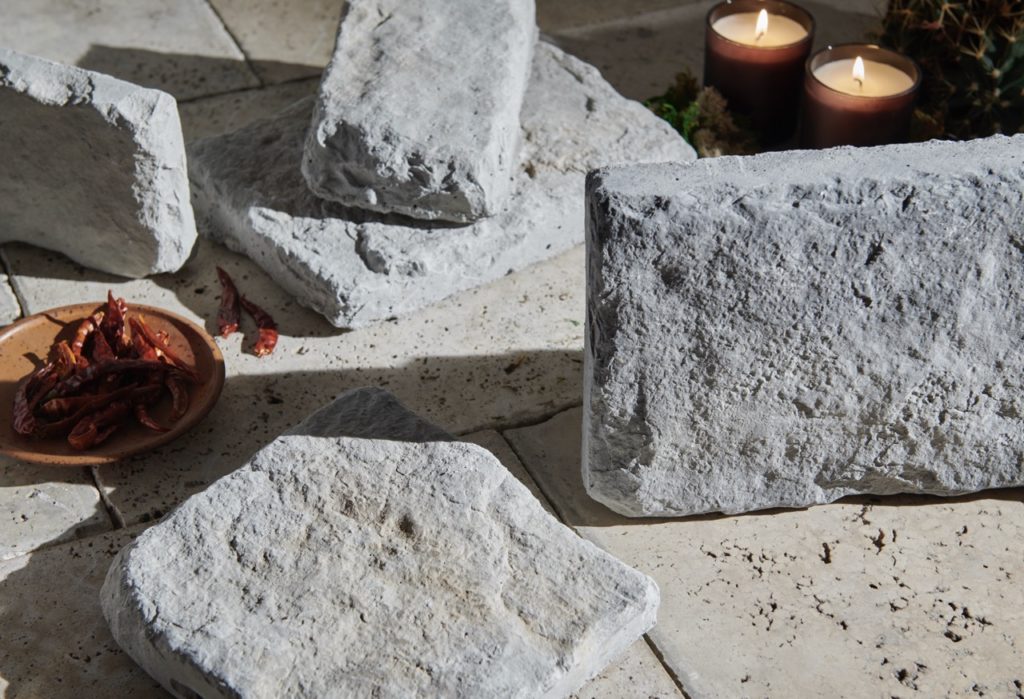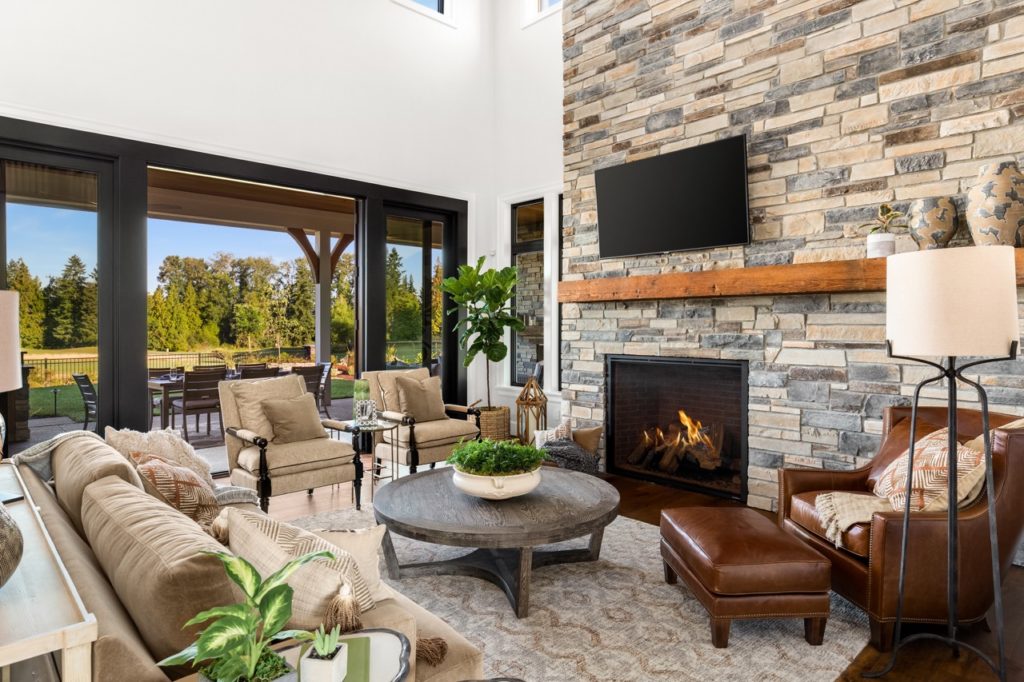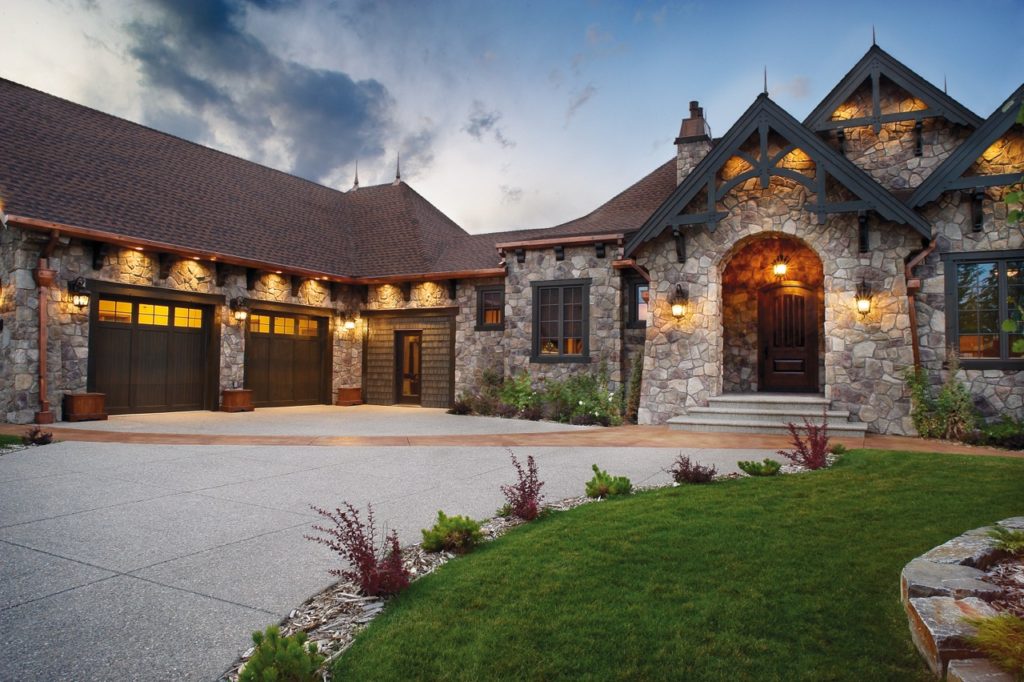In the Know About MSV: A Comprehensive Guide to Common FAQs
Words: Isa Stein
Sponsored By

In the world of masonry and construction, few materials have revolutionized the industry quite like manufactured stone veneer (MSV). In terms of both application logistics and aesthetic appeal, these versatile materials have opened up a world of possibilities for professionals and homeowners alike.
With all innovations come questions, and savvy clients ask many of them. The better equipped professionals are to answer them, the more likely they will be to accurately plan, select the best product and ultimately win more contracts. Below is a deep dive into a few frequently asked questions that masons and trade professionals often encounter about manufactured stone veneer, along with essential considerations when engaging with prospective clients.
1. What is Manufactured Stone Veneer?
Manufactured stone veneer, or architectural stone veneer, is a man-made product designed to resemble natural stone. Products from manufacturers like Cultured Stone are cast into molds that are taken from handpicked natural stone, using a process that captures every intricate detail. Each color and texture is created with its own blend of cement, lightweight natural aggregates and iron oxide pigments to create stone or brick veneer products that look and feel just like quarried stone, without pulling materials out of the earth and in a format that is significantly lighter and easier to work with.
 ECHO RIDGE® SCULPTED ASHLAR
ECHO RIDGE® SCULPTED ASHLAR
2. How does Manufactured Stone Veneer Compare to Natural Stone?
Some key differences between MSV and natural stone include:
- Weight: Manufactured stone veneer is lightweight and easier to install. For instance, the average uninstalled weight of Cultured Stone products is approximately eight to twelve pounds per square foot. Full-bed natural stone is much heavier and typically requires additional structural support.
- Design: While natural stone offers its own charm and variation, MSV provides an even wider range of textures and colors, catering to diverse design preferences. Cultured Stone products provide the largest variety of colors and textures available in any manufactured stone line, with over 20 textures available in over 100 texture and color combinations. With colors ranging from contemporary to traditional, the opportunity to explore unique design aesthetics is far greater than what natural stone can provide.
- Installation Time: MSV typically requires less labor and can be installed more quickly, with many product lines being available in large, panelized formats.
- Cost: Due to its reduced weight and installation time, manufactured stone veneer is generally more budget-friendly than natural stone, making it an excellent choice for cost-conscious clients.
3. What Are the Common Applications of Manufactured Stone Veneer?
- Exterior Cladding: MSV is often used to enhance the curb appeal of commercial buildings, residential homes and outdoor living spaces.
- Fireplaces: MSV can transform a fireplace into a stunning focal point, with an organic textural appeal that complements the primal look of live flame.
- Interior Walls: MSV can add immense character to an interior space while also enhancing the biophilic design factor. Using MSV on an accent wall in a dining room, kitchen backsplash or living space will create a warm and inviting atmosphere.
- Architectural Elements: features like columns, pillars or retaining walls can be adorned with MSV for a timeless look while adding immense curb appeal to a home or building’s exterior.
 ECHO RIDGE® COUNTRY LEDGESTONE
ECHO RIDGE® COUNTRY LEDGESTONE
4. Is Manufactured Stone Veneer Durable?
MSV is known for its durability and will perform the same as any quality lightweight concrete material. When installed properly, it can withstand a wide range of natural elements and extreme temperature fluctuations. However, it should be noted that, as with any concrete or natural material, water exposure can reduce durability. To counteract this, a silane-based masonry sealer is recommended to protect the product, especially in areas that are adjacent to swimming pools or other water features.
Additionally, just as natural stone or brick will stain if a fireplace exhausts smoke, some staining on the MSV may occur as well. Applying a silane-based breathable masonry sealer will make the veneer easier to clean if smoke staining does occur.
5. Can Manufactured Stone Veneer Be Cut and Painted?
With thicknesses ranging from one inch to three inches depending on texture, MSV products can be cut relatively easily using the right tools and techniques. These products can be easily cut and trimmed using a hatchet or wide-mouth nippers. A masonry blade with a circular or masonry saw can also be used.
Painting and overgrout techniques can help you achieve a specified look on given products, but it’s always wise to check with the manufacturer before modifying the product to verify whether your selected approach will impact the integrity of the product.
6. How Does Installation Differ from Natural Stone?
Installation of manufactured stone veneer is generally less labor-intensive than natural stone. Some key differences in installation include:
- Weight and Speed: Because manufactured stone veneer is significantly lighter, this simplifies the installation process. These products don’t require additional foundations or wall ties, making the time invested significantly less than when using natural stone.
- Application Versatility: Manufactured stone veneer can be installed more easily on a variety of surfaces, as long as they are properly prepared, clean, untreated and structurally sound. Ideal wall surfaces for MSV include wood, wallboard, masonry or metal.
 BUCKS COUNTY DRESSED FIELDSTONE
BUCKS COUNTY DRESSED FIELDSTONE
7. What Are the Maintenance Requirements?
Occasional washing to remove surface dust and dirt is all that is required. This can be used with a simple soft bristle brush. If necessary, a solution of mild detergent with water can be used with the soft bristle brush before rinsing with clean water to remove any cleaning solution.
Additionally, while protective treatment is not always required, a sealer with provide added protection to the MSV and will generally make it easier to clean if the surface becomes dirty.
8. What are the Environmental Benefits of Using Manufactured Stone Veneer?
MSV can be an environmentally friendly choice, with its production often involving the use of recycled materials or water. It also reduces the demand for natural stone, which is a finite resource.
Additional Topics
Beyond the questions posed specifically for manufactured stone veneer, professionals will also have to come prepared, often at the front end of a project, to answer more general questions about the process. Common questions from clients or prospective clients could include:
1. Have you had the opportunity to work on projects similar to this one?
Prospective clients typically value seeing a portfolio showcasing your expertise, complete with photos, insights, and experience relevant to projects with characteristics like their own. They will not only want to see and hear about the quality of workmanship but will also want to know about the quality of relationships with homeowners and project owners, and whether or not that process was enjoyable. Be prepared to share your portfolio and have references readily available who are willing to provide feedback to new clients.
2. How many projects do you currently have under construction?
Prospective clients want to know this for two reasons. They see current business as an indicator of how in demand you are: an in-demand builder is likely a good builder. Also, they want to know how much time you have to devote to their project. If you’re a home builder with six homes currently under construction, does your team have the bandwidth to handle them all concurrently, or are you moving teams around so that some job sites have no activity for days or weeks on end?
To earn a client’s trust, you have to be able to strike the proper balance between having a solid book of business while also assuring them you can be devoted to the completion of their project.![]()
3. Can you recommend product options for reducing environmental impacts?
This is an increasingly common question among both residential and commercial clients, as the desire to build sustainably goes even further into mainstream, not to mention the potential cost savings gained by building energy efficient and low-maintenance structures. Be prepared to discuss items like green building materials with the client and talk about your own experience using them. This can be something relatively simple like orienting and glazing a house to take advantage of passive solar heat and light or adding thermal mass with a manufactured stone wall.
Thorough preparation in confidently addressing questions about products and practices goes a long way toward boosting client trust and ensuring a high-quality result in projects with manufactured stone veneer.